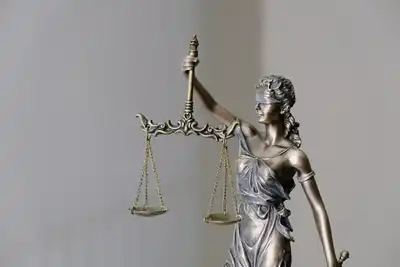What Is The Rule Of Law In South Africa

What Is Rule Of Law?
The political tenet of the rule of law is that all individuals and institutions within a nation, state, or community, including legislators and authorities, are subject to the same laws. According to the Encyclopedia Britannica, the “system, process, institution, practice, or norm that maintains the equality of all citizens before the law, ensures a nonarbitrary type of government, and more generally prevents the arbitrary use of power” is known as the rule of law. The phrase “rule of law” refers to a political reality, not a particular legal rule, and is strongly tied to both constitutionalism and Rechtsstaat.
What Is The Rule Of Law In South Africa?
South Africa utilizes a variegated legal system, which is derived from several unique legal traditions: a civil law system sourced from domination of the Dutch, a common law system adoptedfrom the British colonial masters, as well as a customary law system practiced by indigenous Africans (often known as African Customary Law; and these vary distinctly based on which tribe they originate from). These legal sources have had a somewhat unique integration, with the laws set up by the English being the most dominant in the legal framework, and the Roman-Dutch sourced laws affect to a great extent, the private sector.
What Foreign Law Influences South Africa
In general, South Africa is primarily influenced by English law in both the criminal as well as the civil sectors of society. It also influences constitutional law, company law and the law of evidence. The Roman-Dutch common law however is noticed to have a strong presence in contract law, tort law, and law of persons, things and family.
- How Much Is A Truck In South Africa?
- How Much Does A Pilot Earn In South Africa?
- How Much Does A Divorce Cost In South Africa?
- How To File For Divorce In South Africa
- How To Buy Stock In South Africa
- How Much Do Uber Drivers Make In South Africa
- How Much Do Uber Eats Drivers Make In South Africa
- How Much Do Lecturers Earn In South Africa
- What is VAT in South Africa?
Law Proceedings
Aside from South Africa, the exact law proceedings used, especially in its civil and common law, also constitute the foundation of the laws of Botswana, Lesotho, Namibia, Eswatini and Zimbabwe, which were unveiled in the process of colonization. Lesotho was privy to this form of law in 1884, and Botswana and Zimbabwe, then Rhodesia, received it in 1891. Swaziland, also known as Eswatini received the law in 1904, and Namibiareceived the law in 1920, after its conquest by South Africa.
The Structure Of The Court System
The structure of the court system in South Africa follows an organized hierarchy
First is the Magistrates’ Court, which consists of either smaller Regional Magistrates or Larger District Magistrates)
In the second place, there is a single high court with numerous sub-divisions all over the nation. The regions are classified into two namely;
A good example is Gauteng which inhabits both the High Court of South Africa Gauteng Division, Pretoria which is found in Pretoria, and the High Court of South Africa Gauteng Local Division, Johannesburg which is found in Johannesburg.
Third in hierarchy is the Supreme Court of Appeal, which is established solely for the purpose of appeal. It is simply termed the court of the second chance by some individuals which implies that one can have his or her case tried here if the initial ruling was not favorable or fair in their sight.
The last but the greatest judicial agency is the Constitutional court and addresses matters concerning the constitution itself. Aside such matters, the Constitutional court has the authority to deal with a plethora of issues as long as it deems them fit. Also, the Constitutional court has the discretion to determine if a case should be considered constitutional in nature or not.
Share This




